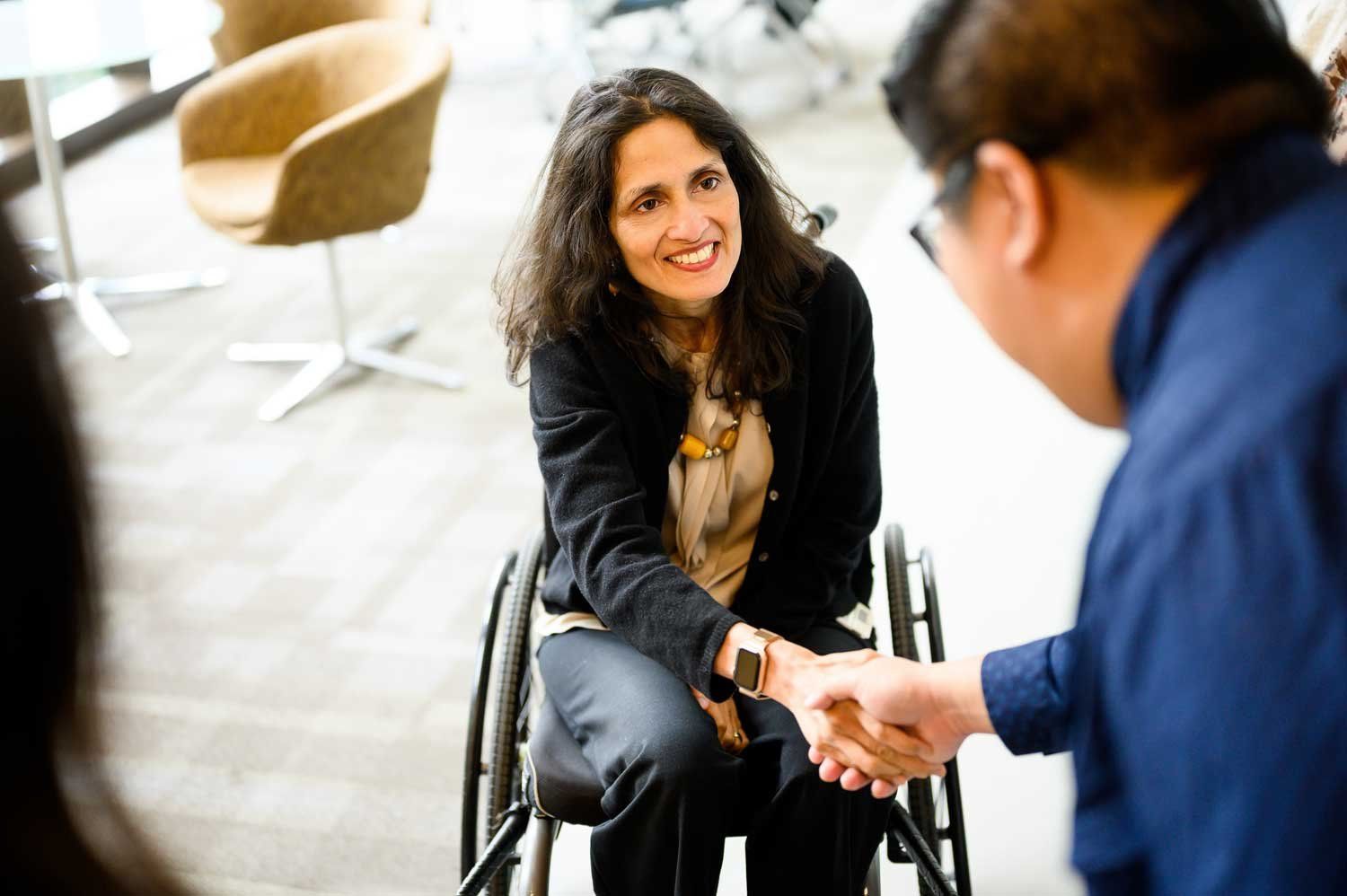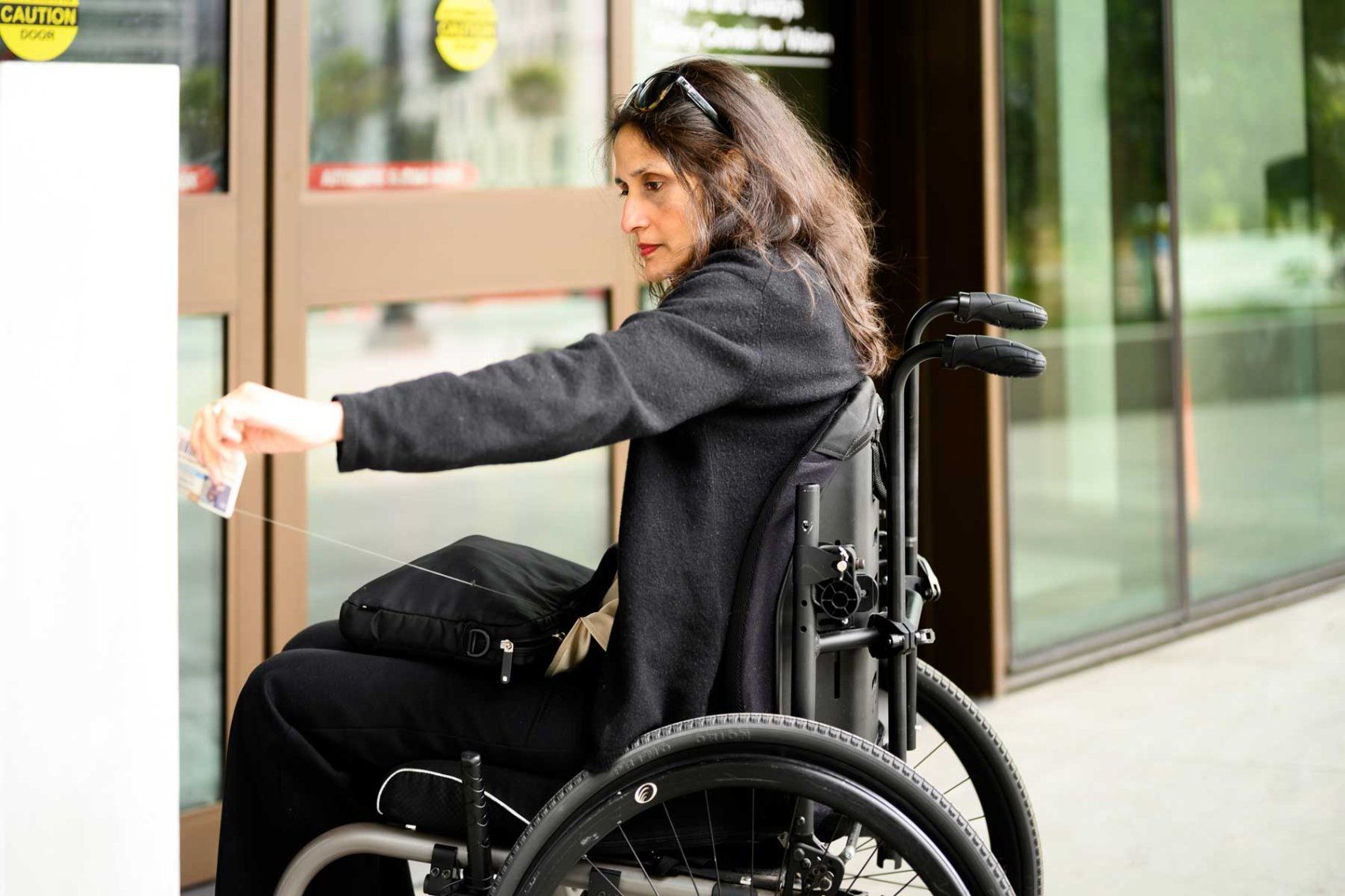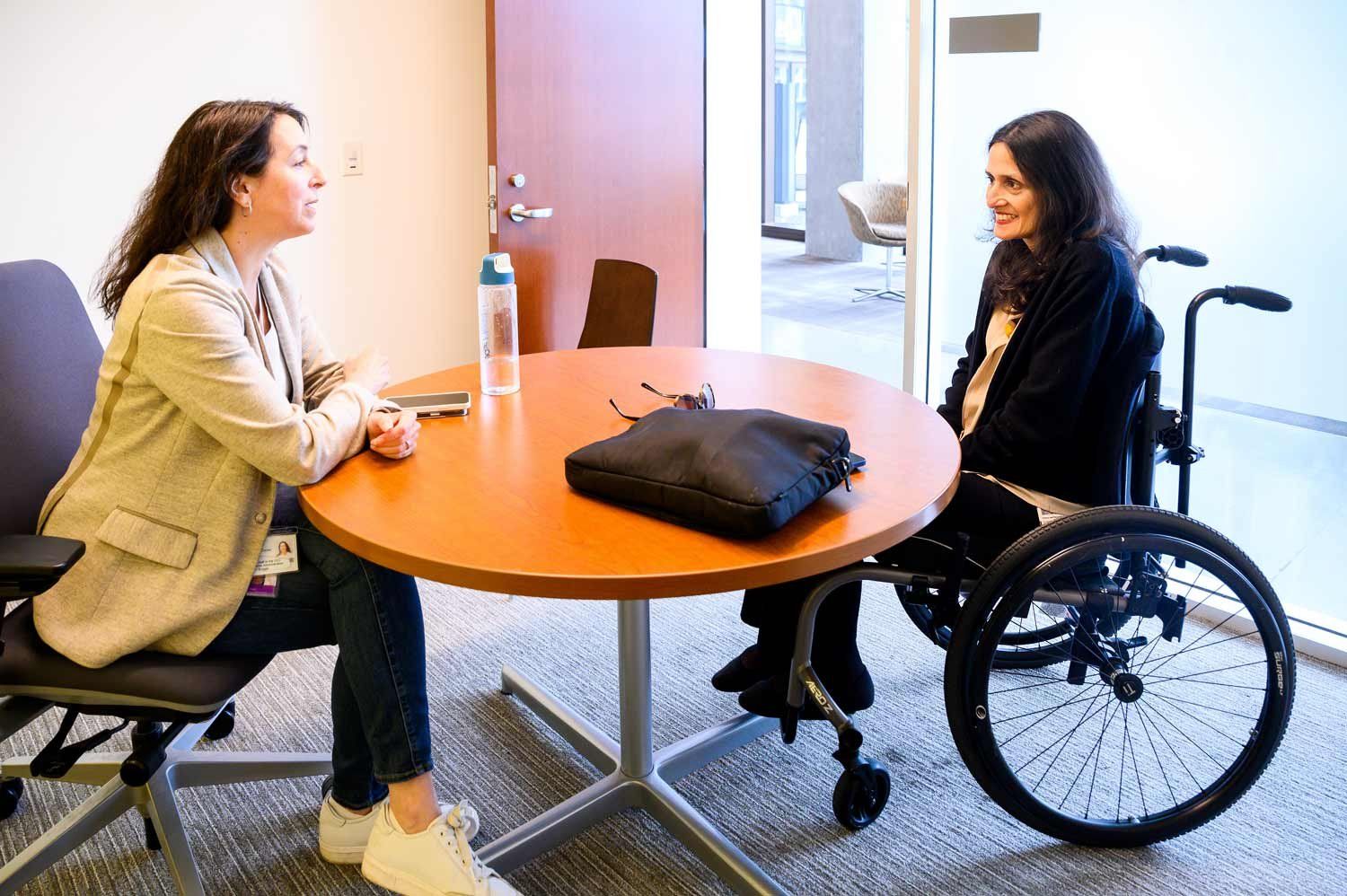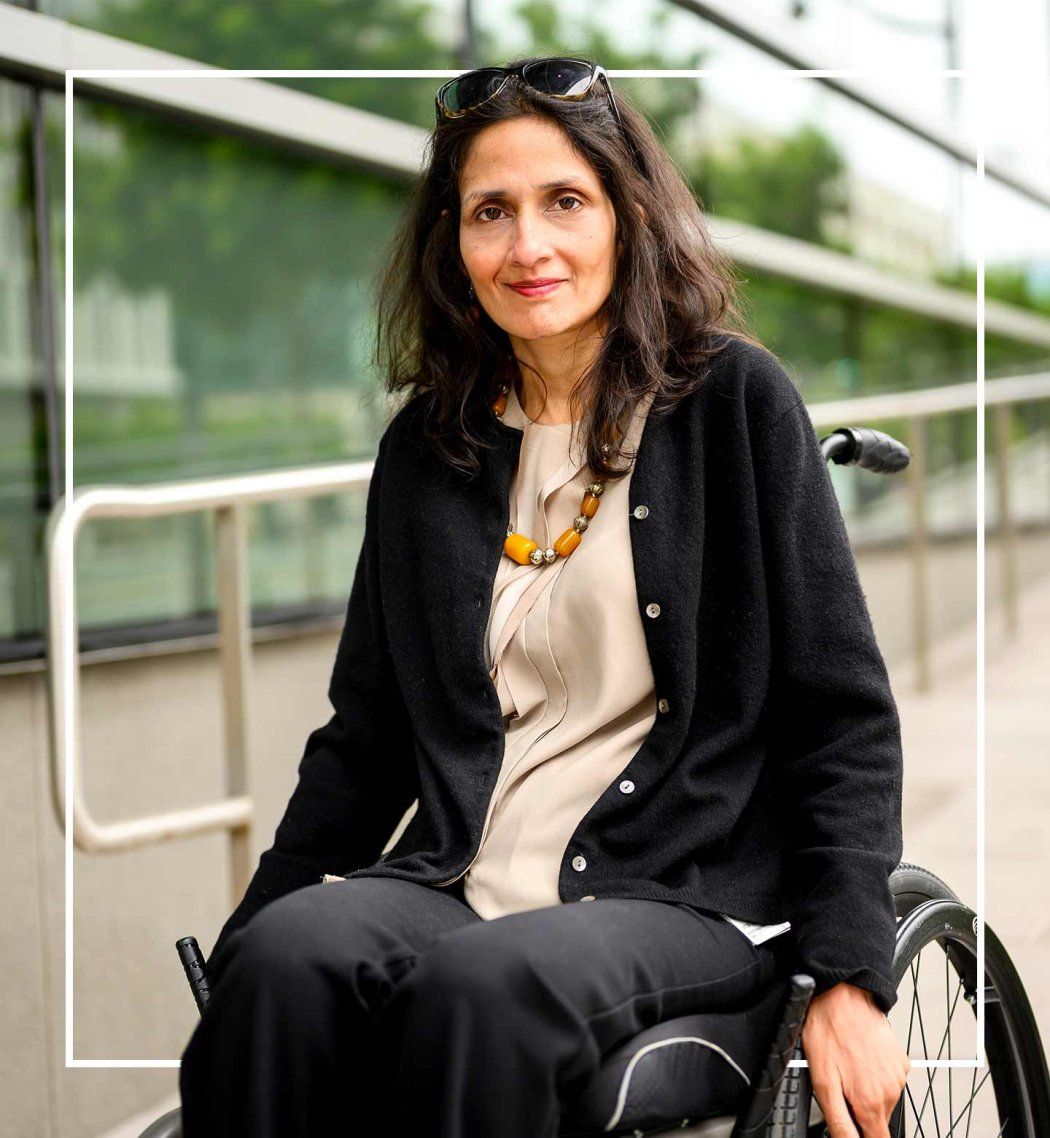This story is part of a series to raise the visibility of people living with a disability at UCSF and to share resources available at UCSF to serve and support this community. Join us as we share their stories.
Janhavi Bonville’s world changed in a hurry.
Once an avid hiker and tennis player who “loved the outdoors,” Bonville often went to the gym three times a week before her physical state began to decline. The UCSF Associate Executive Vice Chancellor and Provost gradually found herself needing crutches, a cane and a walker before eventually becoming a full-time wheelchair user. These days, she still exercises with an adaptive trainer, uses a recumbent tricycle and has recently taken up wheelchair tennis.
Bonville has a condition that’s worsened her physical abilities, one that’s gotten “progressively more challenging” over time.
Like so many people across UCSF, the disability continues to impact her today in multiple, unseen ways.
“There’s so much stigma on disability. People need to speak up and share, and challenge, otherwise we’ll never address the issue,” Bonville said. “We’ll never bring to light how difficult this is and how this entire segment of society is often excluded. The challenges this community faces are often invisible.”
Bonville, a former Chair of UCSF’s Committee on Disability Inclusion for years, joined Caro Reyes and Chase Anderson, MD, in a recent UCSF Town Hall event highlighting members of the UCSF community with disabilities, their ongoing challenges and what they’d like people to know as part of an ongoing conversation.

“I’d always admired UCSF from afar before I came here and felt like it was a cornerstone of my life and community. That’s why I came here. I wanted to be a part of that mission,” says Bonville, who works as UCSF Associate Executive Vice Chancellor and Provost, managing strategic planning and complex projects for the Provost among multiple other responsibilities.

However, accessing her office on campus was challenging. Obstacles like stairways, long hallways, out of service elevators, and inconvenient handicap entrances led Bonville to transition to occasional remote work.

“I do think at an institution like (UCSF), every single building should be accessible and inclusive,” says Bonville.
Born in Switzerland, growing up in Africa and moving around the world, Bonville came to the U.S. when she was 17.
She went to college on the East Coast, graduate school in the Bay Area, and remained in the Bay Area now for more than two decades, spending the first part of her career in the private sector. Now in her 13th year at UCSF, Bonville handles strategic planning and complex projects for the Provost among multiple other responsibilities.
“UCSF has always been of interest to me,” she said. “I’ve been a patient at UCSF Health for well longer than I’ve worked here. I’d always admired UCSF from afar before I came here and felt like it was a cornerstone of my life and community. That’s why I came here. I wanted to be a part of that mission.”
However, UCSF was not as well prepared as expected to address the challenges of someone with a disability.
Her office at Parnassus Heights became a challenge in itself. “I used to park at Parnassus and try to walk with canes to my office,” she explained. “It was hard. I actually fell once and ended up in the ER. I realized something had to change.”
Stairways, long hallways, obstacles, out-of-service elevators and inconvenient accessible entrances were among the reasons Bonville transitioned to occasional remote work in approximately 2017. It was simply safer.
Coping with her condition wasn’t just a physical shift, either.
Bonville also found herself dealing with fear, anxiety and “everything that you would feel from things changing so much (and) having a new normal.” Her life as a busy working mother, already challenging, became even more complex.
“I didn’t see anyone around me with disabilities,” Bonville said. “That impacted me, that I didn’t see a lot of representation out there. I haven’t historically been an activist or an advocate. I’m not someone who seeks the spotlight at all. I actually don’t like the attention for the most part. However, what I realized is that I wasn’t helping anybody by not speaking up. I couldn’t hide my cane, as much as I wanted to; and I realized I shouldn’t have to, either.”
As Bonville found her voice, her impact grew.
UCSF’s Chief Accessibility and Inclusion Officer position – the first at UCSF and the UC system – would not exist without her efforts, working with Vice Chancellor for Diversity and Outreach Renee Navarro.
“People with disabilities are incredibly strong, incredibly resilient and great problem solvers,” Bonville said. “But the mainstream community must be aware that there are additional challenges. I do think at an institution like (UCSF), every single building should be accessible and inclusive.”
Now seeing her role in shaping the world from a more unique, inclusive perspective, Bonville isn’t slowing down.
“There would be a big win if we can improve our whole accommodation process, make it more intentional,” she said. “But the real win is if we change the way people think about those with disabilities. That’s the purpose of people speaking up like this.”
Diversity is inclusion.
Join the conversation at UCSF.
Accommodations for All
Everyone should be able to fulfill their potential. Support, assistance, and reasonable accommodations are available for all UCSF faculty, learners, and staff with disabilities or medical conditions.
Become an ally and advocate
UCSF provides training and webinars for all staff to learn more about disability awareness and reasonable accommodations.
